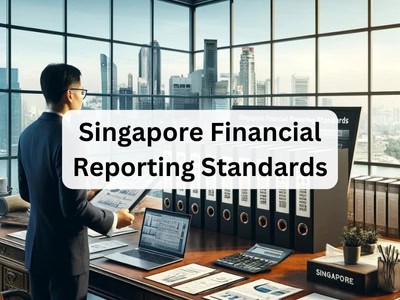This post is also available in:
![]() 简体中文 (Chinese (Simplified))
简体中文 (Chinese (Simplified))
Corporate Compliance Requirement – Singapore Financial Reporting Standards
 In Singapore, accounting standards are developed for two reasons. The first is accounting standards are developed in the public interest in support of the country’s corporate governance. And secondly, accounting standards are developed in support of the country’s reporting framework.
In Singapore, accounting standards are developed for two reasons. The first is accounting standards are developed in the public interest in support of the country’s corporate governance. And secondly, accounting standards are developed in support of the country’s reporting framework.
To enjoy public confidence while setting up an accounting standards process, it must be based on a reliable and strong foundation. The Accounting Standards Council or ASC is the one that is responsible for formulating these accounting standards, including the Singapore Financial Reporting Standards.
The ASC is also equally responsible for the Interpretations of FRSs (INT FRSs). It is the job of the ASC to make these accounting standards known to the public. The other duties of the ASC include:
- Assisting companies by recommending suitable accounting standards
- Assisting charities, societies and co-operative societies by recommending suitable accounting standards
Singapore Financial Reporting Standards vs Singapore Financial Reporting Standards for Small Entities
Smaller companies in Singapore have a different set of reporting standards to adhere to, called the Singapore Financial Reporting Standards (SFRS) for Small Entities. Simply put, the SFRS for Small Entities is a simpler, less complicated version of the full Singapore Financial Reporting Standards.
A smaller company – or Small Entity- in this case, qualifies only when a company has met the requirements below:
- The company is not accountable publicly
- The company has no more than 50 employees in total
- The company’s total gross asset surpasses no more than SGD$10 million
- The company’s total revenue surpasses no more than SGD$10 million
*Note: If the company is part of a group of companies, the above will be considered and applied under the terms of a consolidated basis.
The SFRS for Small Entities exists with the aim of making it easier for smaller companies to fulfil their accounting requirements. Smaller companies still must face the compliance costs when it comes to preparing their financial statements, but the SFRS for Small Entities helps to lighten the load.
The main differences between the regular Singapore Financial Reporting Standard (SFRS) and the SFRS for Small Entities is especially obvious in these four areas:
1. Associates
SFRS – The equity method is required
SFRS for Small Entities – Cost model is an available option
2. Investment Properties
SFRS – Disclosure of fair value and fair value measurement is needed. Cost model is available as an option.
SFRS for Small Entities – Disclosure of fair value is not needed if cost model is adopted. If fair value measurement is not available, cost model is an available option under property, plant and equipment.
3. Disclosure on Financial Risk Management
SFRS – Required
SFRS for Small Entities – Not required
4. Property, Plant & Equipment
SFRS – Required
SFRS for Small Entities – Opening and closing balance of the prior year is not required.
How Smaller Companies Stand to Benefit from The SFRS for Small Entities.
Smaller companies – especially new start-ups – will be able to benefit a lot more from the SFRS for Small Entities compared to if they were to follow the regular Singapore Financial Reporting Standards guideline. Among the benefits smaller companies stand to gain from abiding by the SFRS for Small Entities include:
- A generous reduction in terms of disclosure requirements
- Enjoy a simplified process of preparing the company’s financial statements
- Able to omit disclosures which are not relevant to the business owners


